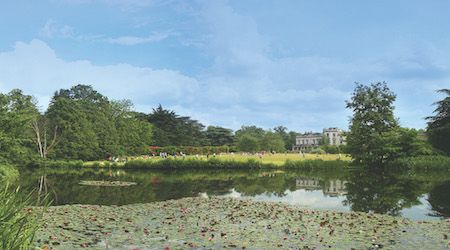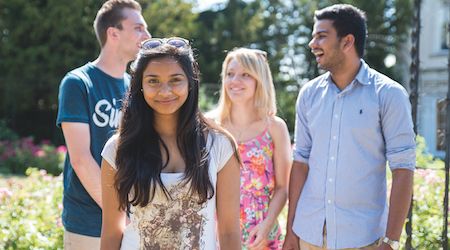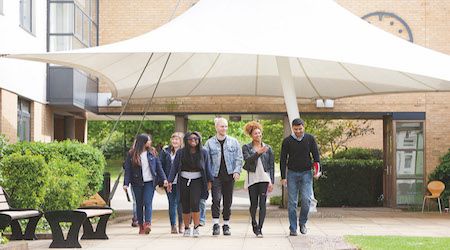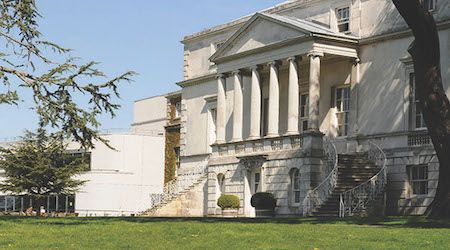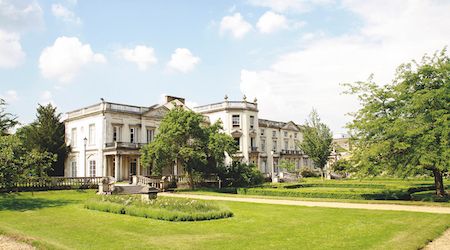University of Roehampton, BA (Hons), Education and History
Education Year 1: The student studies a number of compulsory courses introducing them to the main ideas in education; studying the history of the education system helps the student see why it is structured as it is, and a study of the philosophy of the system provokes them into questioning their educational values; the student tackles child and adolescent psychological development and investigates sociological influences such as race, gender and class; the student may also able to choose from a range of optional courses according to their particular interests. Year 2: in the 2nd year the student takes a compulsory course exploring controversial contemporary issues in education; the student may be able specialise by studying a particular age range if they wish, or they can focus on an area such as technology, values in education, or the spiritual and emotional aspects of learning and schooling; there is also an exciting opportunity to undertake an education placement providing opportunities to work with children on an informal basis; the student benefits from optional modules that cover a wide range of topics which may include: comparative studies (education in other countries); gender and race; education in museums; careers education and special educational needs; the student can study from a range of supported learning, building experience and confidence in various fields of employment; examples include: work with youth clubs; nurseries; behaviour units and youth offending teams; some other external certification and training with organisations such as the National Society for the Prevention of Cruelty to Children/National Pyramid Trust and the Communities Empowerment Network. Year 3: in the 3rd year the student can choose to undertake a special study in an area of personal interest with the support of a tutor. History Year 1: The student takes modules focusing on history from ancient to modern worlds such as Europe and overseas expansion, and war and social change in Europe 1914-1923; core modules in reading and writing history, and in questioning citizenship provide the basis for more advanced studies in the upper years; the student must also complete a research project and thus develop historical skills by selecting and analysing evidence in order to present their personal interpretation of historical events. Year 2: the student takes the compulsory histories module, which examines social, cultural and technological approaches to history through the theme of war; the student may also be able to survey a particular country or region, such as 17th-Century England or modern Germany, or pursue important themes such as crime and punishment in England, 1750-1914. Third year: as well as taking more specialised options, the student studies original documents more intensively and may prepare a dissertation or a special long essay involving independent research under the guidance of a supervisor.
Other courses at University of Roehampton
-
BA (Hons) Design
-
BA (Hons) Business Management
-
BA (Hons) Politics and International Relations
-
BA (Hons) Hospitality & Tourism Management
Photos
